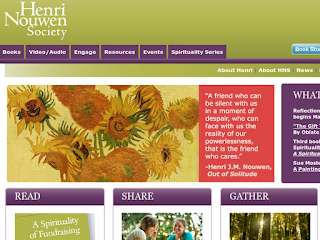< Water becomes wine | Index | An invalid is healed >
In the second of John's signs, Jesus speaks with a royal official in Cana and heals his son. The interaction between Jesus and the official is illuminating. It reveals much about them both.
Here is the second sign in John's book about Jesus.
John explained the reason for including this sign as well as six others.
He wrote, 'Jesus performed many other signs in the presence of his disciples, which are not recorded in this book.'
'But these are written that you may believe that Jesus is the Messiah, the Son of God, and that by believing you may have life in his name.' (John 20:30-31)
Here, then, is his account of the second sign in which Jesus heals a boy without even having him physically present.
Once more he visited Cana in Galilee, where he had turned the water into wine. And there was a certain royal official whose son lay ill at Capernaum. When this man heard that Jesus had arrived in Galilee from Judea, he went to him and begged him to come and heal his son, who was close to death.
‘Unless you people see signs and wonders,’ Jesus told him, ‘you will never believe.’
The royal official said, ‘Sir, come down before my child dies.’
‘Go,’ Jesus replied, ‘your son will live.’
The man took Jesus at his word and departed. While he was still on the way, his servants met him with the news that his boy was living. When he enquired as to the time when his son got better, they said to him, ‘Yesterday, at one in the afternoon, the fever left him.’
Then the father realised that this was the exact time at which Jesus had said to him, ‘Your son will live.’ So he and his whole household believed.
This was the second sign Jesus performed after coming from Judea to Galilee. (John 4:46-54)
Here are the four questions once more, again I'm not going to provide answers but will try to point you to where those answers might be found.
What does this story tell us about people? - Consider each of them in turn.
The journey from Capernaum to Cana was 27 km (17 miles) and it was uphill most of the way, a tough and exhausting journey. The royal official may have been Jewish or he may have been Greek or Roman. He would have commanded some status, but Jesus also had a certain status as a Jewish Rabbi. Did the royal official treat Jesus as an equal? If not, did he treat Jesus as high or low status? The passage tells us several more things about the official and his actions. Consider everything he did and said.
The next person mentioned is the child who was ill. John doesn't tell us how old he was, but we know he was back home in Capernaum.
Next, Jesus mentions the unspecified 'you people'. Is he talking about important officials, the listening crowd, the population of Cana or Capernaum, or people in general?
Then we read about the official's servants. They know that he will want to hear the good news about his son. The servants may have left Capernaum about the same time the official left Cana. They would have met about halfway between the two places.
And finally, John mentions the official's 'whole household'. This would typically have included his family (young and old alike) as well as his servants.
What does it tell us about Jesus? - There is information here about his mobility in Judea and Galilee, his attitude to requests for help, his knowledge about people's motives, his authority in speaking to people, his authority over the natural world, and his effect on the people who met him.
The Greek word 'zao' (your son will live) refers to eternal life when it's used elsewhere in John. It therefore implies more than just surviving in a worldly sense. When the 'whole household believed', that would have included the boy who had been ill.
What else can we learn about Jesus from these verses? Did you notice that in doing the one thing he was asked to do there was a greater fruit that came from the answered prayer?
Finally, what does this sign convey about the healing process? Does Jesus need to be physically present? What does the answer imply for us when we pray?
What does it tell me about myself? - Is there anyone in this passage that reminds you of yourself? Have you ever had sickness in the family?
Who else needs to hear this? - Do you know anyone who would benefit from hearing the story of this healing? Will you help them? If not, why not?
Additional points - This sign takes things well beyond the first one. Physical things (bread and wine) have been replaced by a dying child. The stakes are higher this time!
As before you might consider using this blog post as a discussion outline or Bible study. There are many possibilities. One to one with a friend would be good too.
There is much more about the royal official in Cornelis Bennema's book 'Encountering Jesus'. You can read a relevant extract on line.
< Water becomes wine | Index | An invalid is healed >







